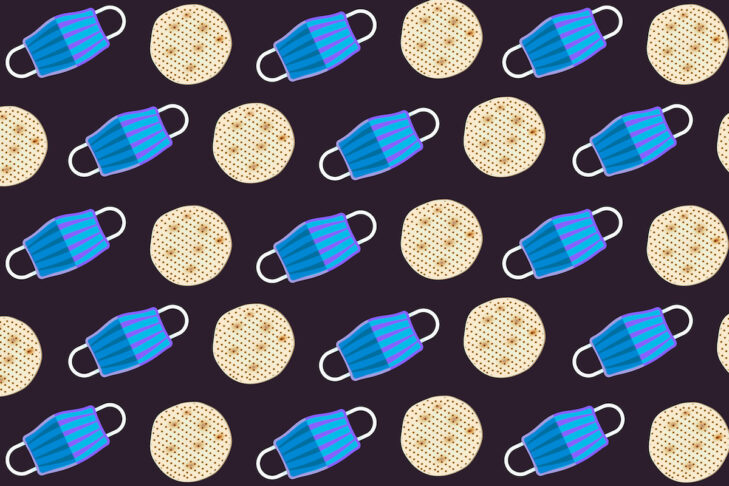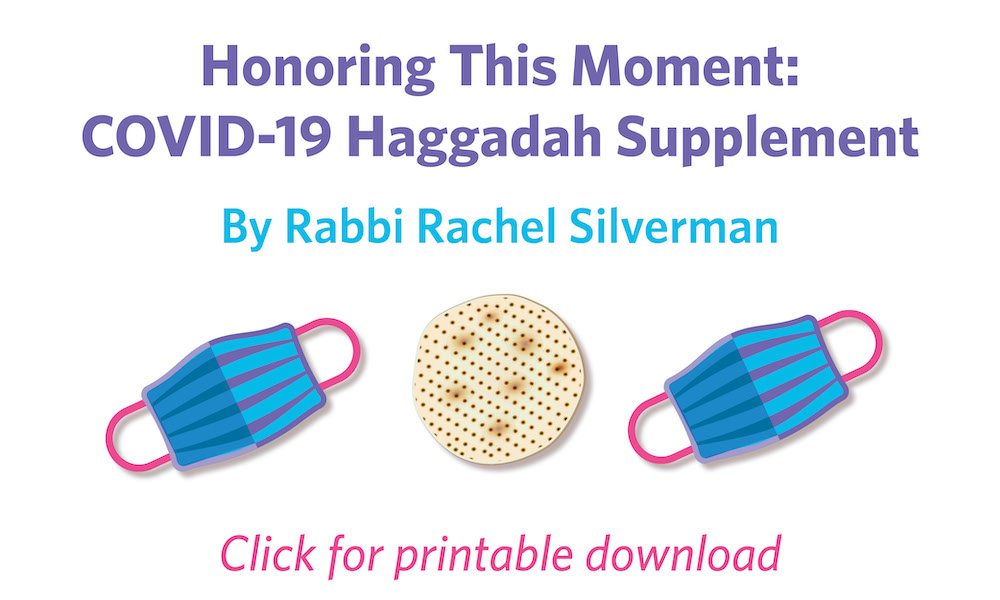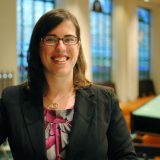This Passover isn’t going to be like last year’s Passover (phew!). Nor will it be like next year’s Passover (please God). So, let’s talk about where we are and how we can prepare for the holiday.
We’ll start with what we know: Masks work. Being outdoors with people outside of your household is infinitely safer than being inside. Vaccines work. COVID-19 testing is easy, accessible and, in many cases, free. Both seders are on the weekend. And here is a downloadable Haggadah supplement to mark where we are right now.
If you’re the kind of person who likes to explore and figure things out on your own, here are some guiding questions to help you through this process.
Much like a cheshbon hanefesh (accounting of the soul) before Rosh Hashanah, this is a good opportunity to do a check-in with ourselves and to narrow our focus to what is important to us. You might consider taking some quiet time to journal or think about some of these questions:
- What one Passover tradition do I want to focus my energies on this year?
- How will I connect with my family (chosen or of origin) safely this Passover season?
- What do I need to make happen for me to feel like I’ve celebrated Passover this year?
- How will I make this holiday feel special—for myself, for those I live with and for those I love?
- How will I honor the lives lost this year and the empty chairs around our table?
- In what ways can I put into action the words of the seder, “Let all who are hungry come and eat”?
- A major theme of the seder is gratitude—for what are we grateful this year? And to whom are we grateful?
If you’re the kind of person who just needs some answers now, here’s a list of recommendations:
- Visit with friends and family (distanced and masked) outside during the day, rather than sharing a meal inside.
- Make a donation to Yad Chessed in honor of all the people you’re not feeding at your seders this year.
- Make a huge batch of chocolate toffee matzo, package it up and share it with loved ones ahead of the seder.
- Meet up before the seder to swap foods (you cook the main; let your “guests” cook some sides), eat and seder together over Zoom. Got extra creative energy? Give each household matching table decor, place cards or flowers.
- Send your kids outside for a matzah hunt (hide 10 pieces of matzah around your yard and send them out to find them).
- Don’t forget the kitsch! If you’ve got kids at your seder, now’s the time to order afikomen prizes, a matzah scrunchie or a 10 plagues hand puppets kit. Download activity pages or a Spotify playlist. Check out this Zoom seder made by local teacher Meg Lederman. If the holiday is going to be different than how we’d like it to be, at least take extra care to make it fun.
Every spring, pandemic or not, I reread an article called “The Stories That Bind Us” by Bruce Feiler in The New York Times. Feiler wouldn’t say he was writing about Passover, but he really is. The strongest families are those that can incorporate their highs and their lows, their challenges and their successes, into their family narrative.
We were slaves in Egypt, but now we are free. Two years ago, we had a “normal” seder, and then last year, boom! Right before Passover, our plans were scrambled, and we weren’t sure what to do. We did our best and it was good enough. This year will be even better, but next year will be our most amazing seder yet. In the meantime, here we are, in the middle, doing the best we can.




